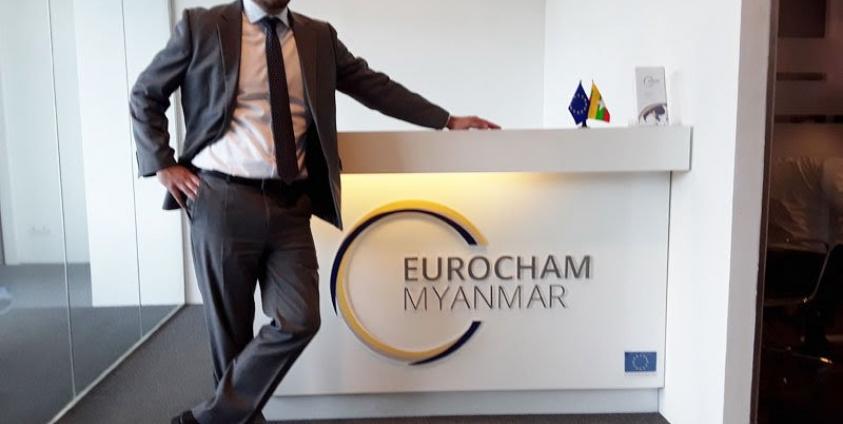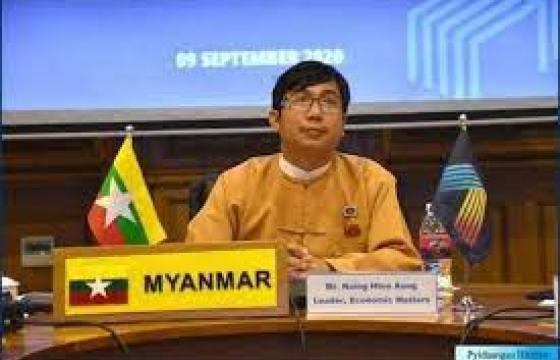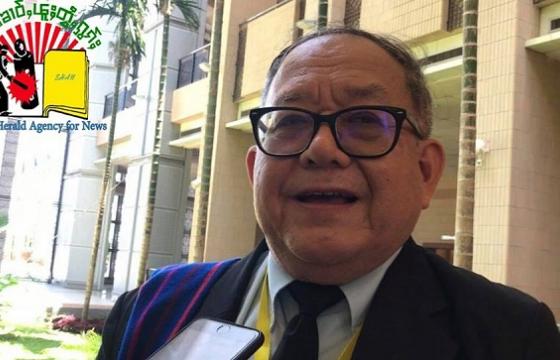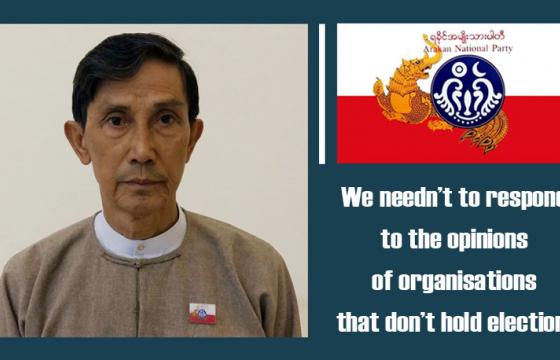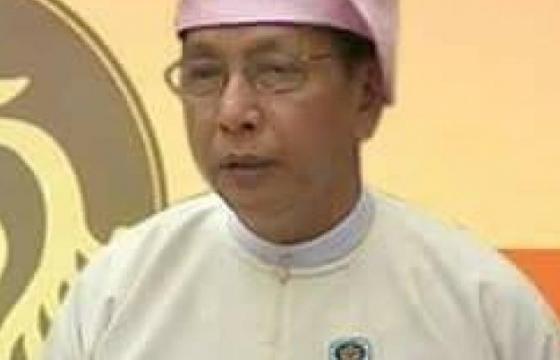Filip A. Lauwerysen is the Executive Director at the newly established EuroCham Myanmar (European Chamber of Commerce in Myanmar) since September 2015. Mr Lauwerysen is a Dutchman who graduated from Leiden University in the Netherlands with a Bachelor and Master of Arts in History, specialised in European globalisation (mainly in Asia). Then he also went to the Communication University of China in Beijing to learn the Chinese language. From 2011 to 2015, he worked in China for the Dutch Ministry of Foreign Affairs as a trade counsellor covering South-China.
Mizzima’s business chief reporter, Aung Thura, interviewed the EuroCham Myanmar’s country-chief regarding EU investment in Myanmar.
Please can you tell us about the role of EuroCham Myanmar?
The European Chamber of Commerce in Myanmar is similar to the other Euro Chamber of Commerce. We are part of the network of 33 chambers of commerce actively cooperating in 33 countries. So we are part of an extensive network. We are here to help European business enter Myanmar, and we try to do that by engaging with the government regarding policy recommendations how to improve the business climate, how to make the structure of changes to make Myanmar a more attractive investment destination.
We are worldwide among the network of 33 chambers; we are the baby on the block. So we are a very young chamber of commerce, but we have grown very fast among western Euro Chambers of commerce regarding staff, finance and capacity. We have staff in Nay Pyi Taw, we also have staff in Brussels, and we are looking into Mandalay as well. So we have grown very fast since we started in September 2015.
How is EuroCham Myanmar helping Myanmar’s economy by attracting European companies?
We believe in the principle of fair trade or open trade that gives awareness of multi-lateral ties where supply and demand can meet each other in the best possible way. Myanmar is now opening up to the world and joining more actively with the ASEAN community and also the world’s business community. EuroCham Myanmar is very well positioned to help European investors enter Myanmar. What Myanmar earns is more investment. In the end, investment creates economic development by helping job opportunities. Eventually, it will contribute tremendously to the growth of middle class in the country. I think that Myanmar lacks a healthy middle class at the moment.
How do you view the current situation of EU investment in Myanmar?
When we talk about the current European investment flow to Myanmar, we have seen a massive increase over the last two years. We did the first business confidence survey in December last year. Business survey confidence is something all European Chambers do in every country. We use it as a tool to see what investors are thinking, why they are investing or why they are not investing, how they are hiring, what areas in the country or what locations are primary interests to investors. This year, we will do another business confidence survey in December, I think that will be a fascinating document to see, to see what the trend is compared to last year when it comes to investment from Europe to Myanmar.
How would you describe the relationship between EU and Myanmar regarding diplomacy and economics?
As many people say, these two things are two sides of the same coin. When contact is made at a political level, then the economic or business relationship will soon follow. As you see, the economy and politics are always connected. In general, European companies are acutely focusing on international trade, and many European companies have an international presence. When Myanmar was opening up a new frontier market with the change at the end of military rule, political and diplomatic relations between the EU and Myanmar were established. Then the removal of sanctions took place. All these things are a big part of attracting investment from EU to Myanmar.
What would you assess is Myanmar’s growth under the current government?
If you look at GDP and the overall performance of the economy in 2015 and 2016, Myanmar’s economy was the fastest growing economy in the world. But, this year, growth drops significantly as well as FDI according to the IMF. Therefore, something has to be addressed to continue the momentum of growth.
So, what are the remaining hurdles to doing business in Myanmar?
When we asked companies what are the main hurdles they are facing we are told the typical things that a frontier market faces as in a lack of proper infrastructure and the problems of the supply chains. In general, these include education level, labour skill-set, logistics problems, the road network in the country, the problems in land prices, and the delay in the construction sector. Thus, these things worry companies. Of course, when it comes to European investors looking for new countries, they will never look at only one country or one continent. (They always approach things from regional perspectives.) When they look at Myanmar, they also look at ASEAN countries before they decide to move into Myanmar.
Myanmar has a new investment law. The government is very confident about the law. Are you also confident?
I think it is a big step and a great improvement. We have issued an official statement regarding this, and I invite people to read it, we to detail limitations that we feel need to be addressed. However, I think this is a positive signal. In general, I have a feeling again that companies operating here would see the opportunity the country offers and would also expect some growth next year.
My question was about your confidence on Myanmar Investment Law.
It is a big improvement compared to before, so I would say yes. However, another thing I think we should look positivity on is the EU-Myanmar Investment Protection agreement. EU has this agreement in different countries, not only in Myanmar. This agreement sends a positive signal, so investors can be confident when they decide to enter new markets.
How do you foresee potential investment by EU companies in the future?
To be honest, I think this issue depends on Myanmar a lot. If Myanmar can change its image because we all know the situation at the moment is not very positive. If Myanmar can change its image to a new frontier market, with an image of stability, then the growth potential could see a new tiger economy.
Are you worried about the Rakhine issue?
The companies that are already active here know about the conflicts that are linked to a particular region, and they know this issue does not affect the whole country. However, companies that are looking for new investment destinations will compare Myanmar with Cambodia, Indonesia and other countries. They will be influenced by the negative image caused by the Rakhine situation. I think this is a mixed opportunity. So every company that comes and decides to set up a factory will create many jobs, this country is still impoverished even though many improvements happen. Foreign investments can provide this. Therefore any negative news or any political instability can have negative repercussions on investment.
Will the Rakhine issue have a negative impact on FDI?
When it comes to investors who are not active in Asia, they are looking at a new market to invest in Asia. So they will look at all the news sources before they move into the country. So anything that contributes to the negative image, there may be an adverse effect on that company’s decision. Anything that contributes to the positive image will translate into a positive image among the investors as well. Besides, European companies like political stability and they do not like any negative images, any conflict.

